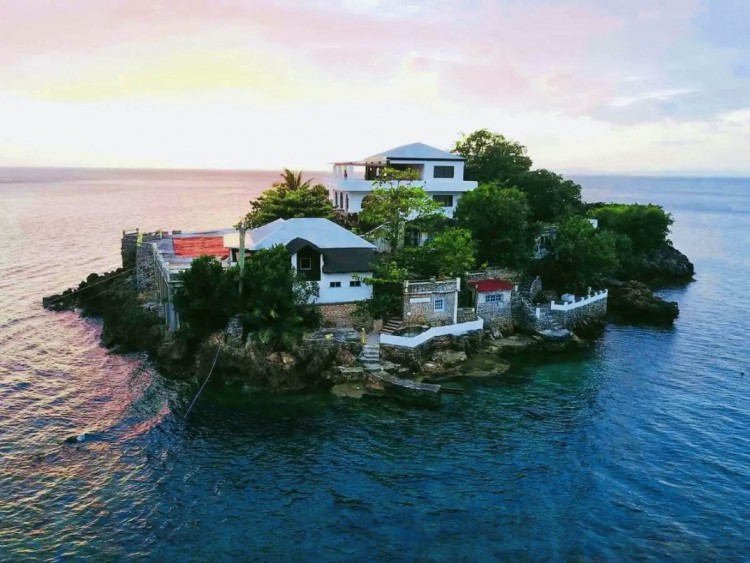The allure of island nations often extends beyond their picturesque vistas and cultural richness; it encompasses their evolving real estate markets. As globalization and economic shifts influence property landscapes worldwide, islands like the Philippines and New Zealand emerge as focal points of interest. Exploring New Zealand property for sale often evokes images of serene landscapes and stable investment environments. In contrast, a glance at Philippine real estate for sale offers glimpses into a rapidly expanding urbanized space supported by a growing population. While both countries provide compelling opportunities in the real estate sector, understanding their distinct advantages and challenges is paramount. This article seeks to highlight the potential benefits and pitfalls of investing in these two distinct island nations.
Advantages of Investing
Philippines:
● High Demand Due to Population Growth: The Philippines boasts a rapidly increasing population, with a significant percentage comprising the working age. As urbanization continues and more people move into cities in search of job opportunities, there is a growing demand for both residential and commercial real estate properties. This offers a promising outlook for property appreciation and rental income potential.
● Tourism Infrastructure Development: Tourism is a major contributor to the Philippine economy. With destinations like Boracay, Palawan, and Cebu continuously drawing global attention, there is an ongoing push towards developing more hotels, resorts, and other related infrastructures. This tourism boom not only drives up the demand for commercial real estate but also increases the value of properties in these prime locations.
New Zealand:
● Stable Market with Low Risk: New Zealand’s real estate market is known for its stability. The country’s strong economic indicators, transparent property laws, and low crime rate contribute to its reputation as a safe haven for property investments. Furthermore, the market isn’t as saturated as other Western countries, allowing for reasonable growth potential.
● High Living Standard and Attractive Scenery: New Zealand is globally renowned for its breathtaking landscapes, from the beaches to the mountains. This natural beauty combined with a high standard of living attracts expatriates and retirees, driving up the demand for premium residential properties. Whether it’s waterfront homes or scenic retreats in the countryside, there’s a continuous interest from both local and international buyers.
Potential Risks
Philippines:
● Natural Disasters: The Philippines is situated in the Pacific Ring of Fire, making it prone to natural calamities such as typhoons, earthquakes, and volcanic eruptions. These events can cause significant property damage and lead to fluctuations in the real estate market. Investors need to consider the location-specific risks and might need to invest in additional protective measures or insurance.
● Political Instability: Over the years, the Philippines has experienced instances of political unrest and changing policies that can impact foreign investments. Regulatory changes, unexpected shifts in land ownership rules, or political disputes can introduce uncertainties for real estate investors.
New Zealand:
● Restrictions on Foreign Ownership: In recent years, New Zealand has implemented restrictions on foreign property ownership to curb skyrocketing home prices and ensure housing affordability for its residents. These rules can limit investment opportunities for international investors, particularly those looking to buy existing residential homes.
● Rising Prices and Competition: The attractiveness of New Zealand’s real estate market has led to increased prices, especially in prime locations like Auckland and Wellington. This upward trend, coupled with the country’s strict building codes and land availability issues, can lead to stiff competition among investors and potentially thinner profit margins.
Conclusions
Investing in real estate within island nations such as the Philippines and New Zealand offers a blend of enticing opportunities and inherent challenges. Both countries showcase unique attributes that make them attractive to investors, yet they also present specific risks that warrant careful consideration.
The Philippines, with its thriving urban hubs and sought-after tourist destinations, provides fertile ground for real estate growth. The increasing population, especially in urban centers, has led to heightened demand for both residential and commercial spaces. Likewise, the tourism sector’s continued expansion creates investment prospects in areas frequented by both local and international tourists. However, the benefits of the Philippine real estate market are counterbalanced by natural disaster risks and occasional political uncertainties. An investor must weigh the prospects of significant returns against potential disruptions that might affect property value or rental income.
On the other hand, New Zealand stands out as a beacon of stability and growth. Its mesmerizing natural landscapes and high living standards make it a magnet for both local and international investors. This nation offers a seemingly perfect blend of scenic beauty and urban sophistication. Yet, the same factors that make New Zealand attractive have also resulted in the escalation of property prices, particularly in its main cities. Add to this the government’s restrictions on foreign ownership, and it becomes clear that the investment terrain, while promising, is not without its hurdles.
To navigate these diverse landscapes, investors should consider the following strategies:
● Localized Research: Understand the micro-markets within each country. While national trends provide an overview, real estate is often about location. Researching specific cities or regions can reveal pockets of opportunity or potential red flags.
● Risk Management: Invest in insurance and protective measures, especially in areas prone to natural disasters. In politically volatile regions, having an exit strategy or diversification can mitigate potential losses.
● Building Local Partnerships: Partnering with local real estate experts can provide insights into market dynamics, regulatory changes, and cultural nuances. This is especially crucial in places with restrictions on foreign ownership or where understanding local sentiments can make or break an investment.
● Stay Updated: Real estate markets are influenced by a myriad of factors, from economic indicators to political decisions. Regularly updating oneself on both local and global events can help in making informed decisions.
In conclusion, while both the Philippines and New Zealand present compelling real estate investment narratives, they cater to different investor profiles. The Philippines might appeal to those with a higher risk tolerance, seeking more aggressive growth. In contrast, New Zealand might resonate with investors looking for stability and long-term appreciation. Both, however, require a deep understanding of the landscape, combined with a strategic approach, to unlock their full potential. As with any investment, due diligence, adaptability, and a keen sense of the local pulse are essential to achieving success in these island nations’ real estate markets.




